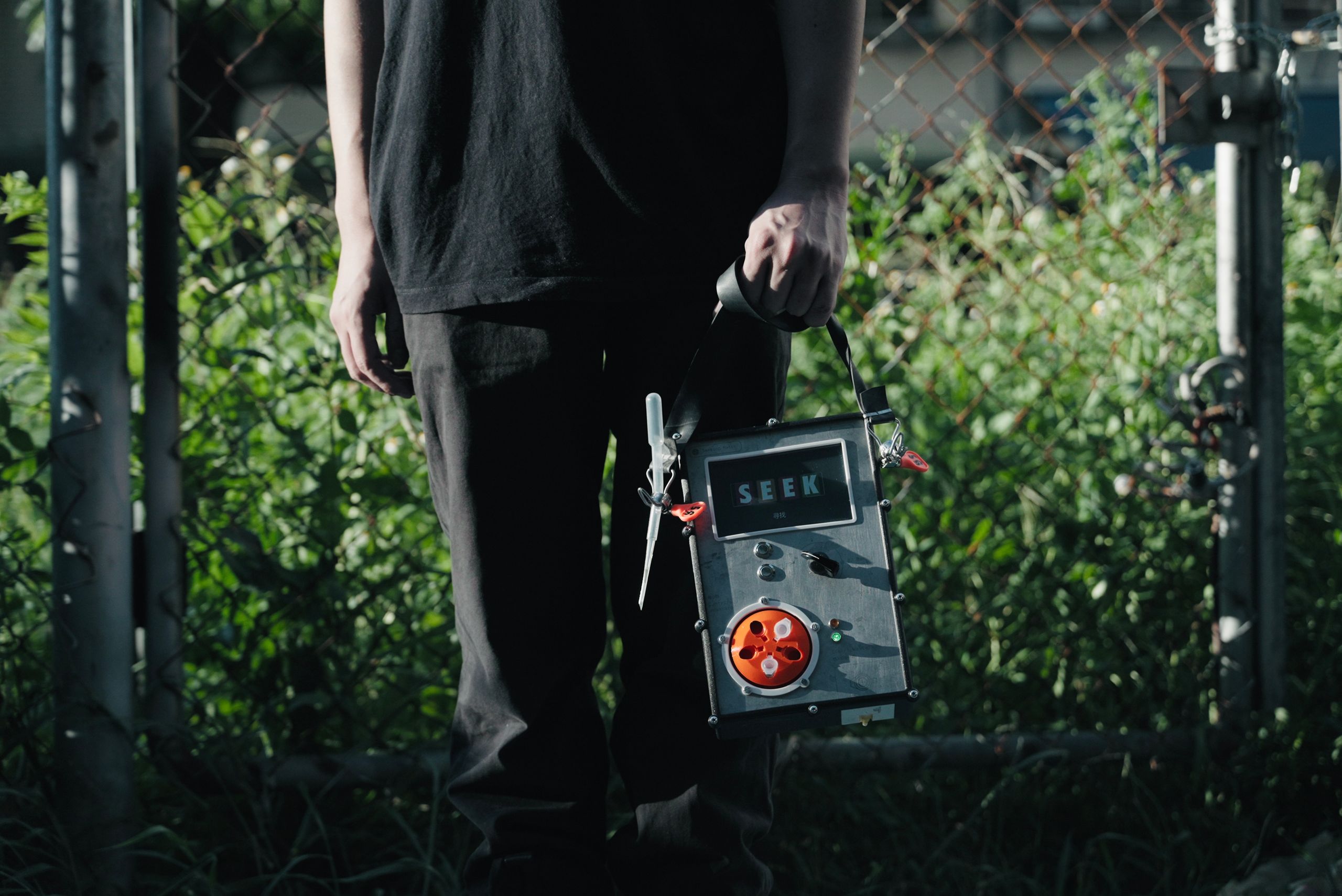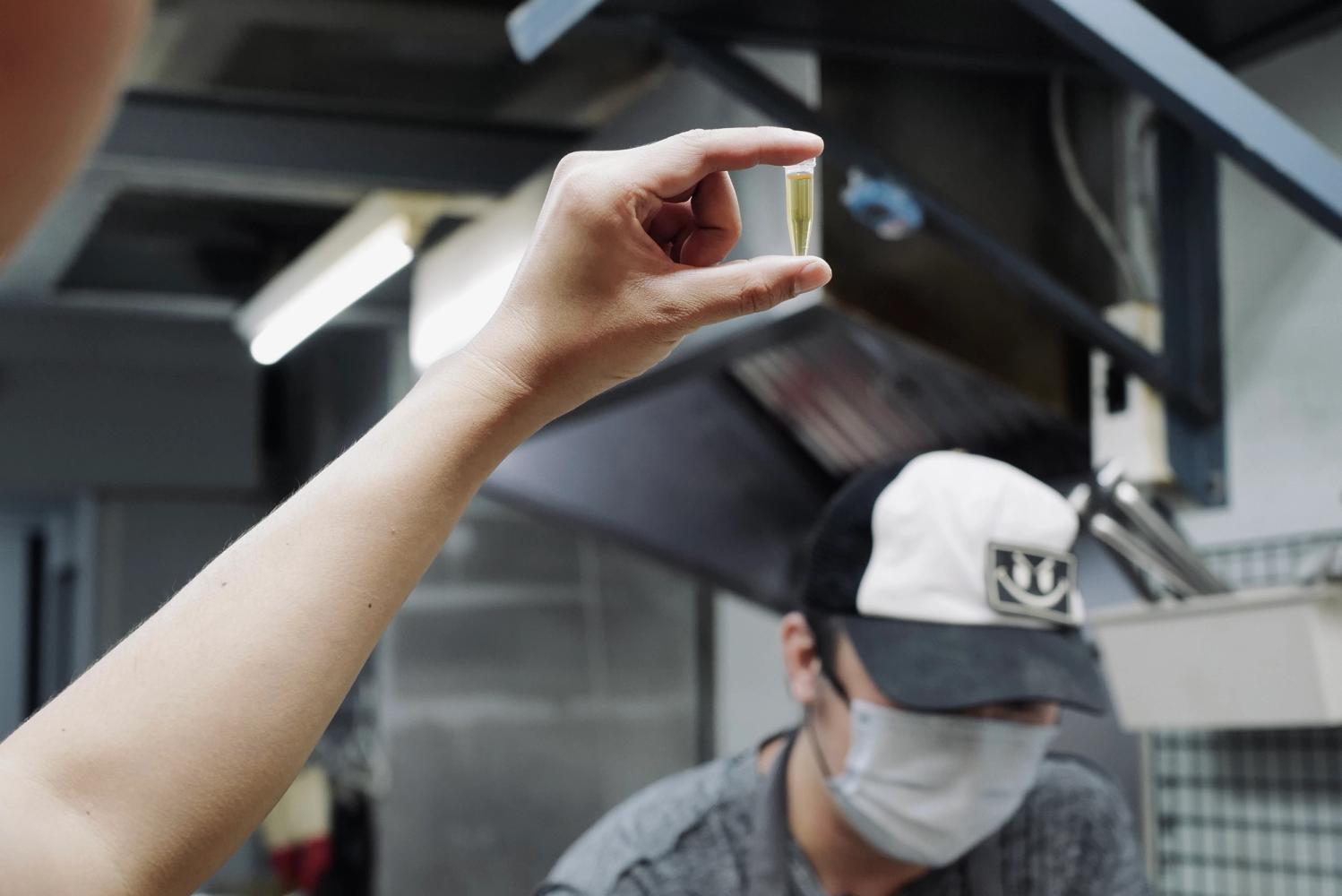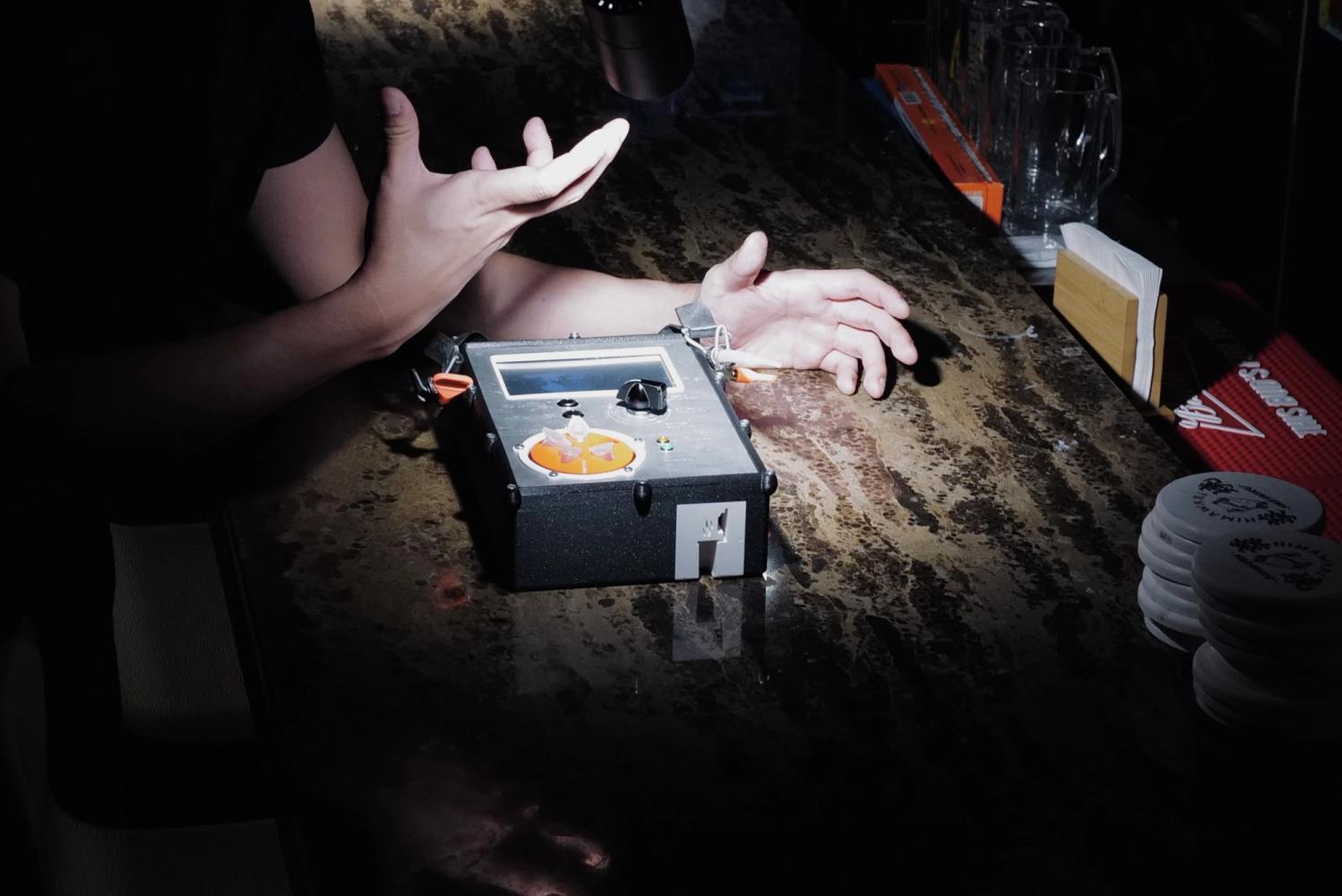Seeking Matter served as an investigative design tool, uncovering the historical anxieties and ongoing controversies around waste oil reuse in Taipei City, Taiwan. Developed in collaboration with Prof. Paul Gong and Atelier Yen-Ann, the project centred around a mobile, speculative device—The “fat trap” – iterated from the school hackathon with the original fat trap. This was designed to move between kitchens, street vendors, and informal cooking spaces. Be cheap to make, build and use, and most of all, feel like a reliable safety intervention the kitchens could use and interrogate themselves. Its function was simple: to test whether cooking oil was genuinely fresh or repurposed from waste oil.
The gutter oil scandal erupted in Taipei in 2014, exposing a darker side of the circular economy. Waste oil was indeed reused—but not as biofuel. Instead, it was illegally resold as cooking oil to street vendors and restaurant chains across the city. Around a thousand food establishments were affected, leaving deep scars in both public and governmental trust. Fatconomy sought to re-imagine the role of the fat trap within this controversial upstream moment—not just as a filtration device, but as a tool for trust in waste streams. It operated as a conversational catalyst, drawing attention to materials that are typically hidden, assumed, or ignored. By situating the fat trap within public spaces and everyday contexts, it disrupted the normal flow of cooking and trade, prompting participants to reflect on their own practices, economic pressures, and ethical uncertainties. Through this embodied, object-based approach, complex policy and supply chain issues became tangible. Conversations that would otherwise remain abstract—about regulatory gaps, sourcing opacity, or export ethics—were grounded in the physical presence of a tool that both invited and unsettled. Street vendors, health inspectors, and passers-by became co-investigators, sharing stories, asking questions, and often revealing contradictions in what they knew, what they practiced, and what they felt about waste oil reuse. Seeking Matter also pointed outward, connecting Taiwan’s local concerns to broader global systems.
Seeking Matter
Fatconomy and the Uncharted Future of Fats






